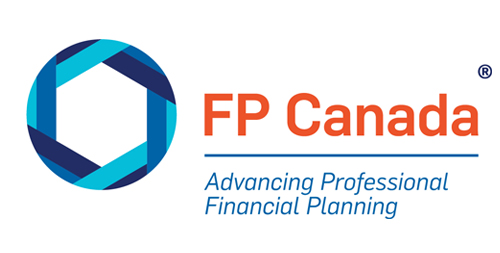Foundations of Investments
KNOWLEDGE EXPECTED OF: QAFP® Professionals
Highest Knowledge Level: Evaluation
Knowledge Levels and Associated Verbs
|
Awareness
The state of being aware that something exists / to have familiarity with a particular activity or subject
|
Understanding
To comprehend the general relationship of particulars / to have an expertise with how something works
|
Application
Ability to put information to use / to use knowledge for relevant, practical purposes
|
Evaluation
To judge or conclude by utilizing data / a systematic determination of something’s worth or significance
|
||||||
|---|---|---|---|---|---|---|---|---|---|
|
Define
To state exactly the meaning of
|
Identify
To be aware of / to recognize and correctly name / to locate an appropriate resource
|
Explain
To make clear the meaning of / to describe something in more detail or reveal relevant facts or ideas related to it
|
Determine
To ascertain / to come to a decision, such as by investigation or reasoning
|
Compare
To note the similarities and differences between two or more things
|
Estimate
To determine an approximate value for
|
Calculate
To find the value using mathematics
|
Convert
To change from one form or purpose to another
|
Evaluate
To reach a conclusion or make a through careful study
|
Interpret
To give the meaning of / to construe or understand / to translate orally
|
Hold cursor over or click on each term to read its definition.
- Identify roadblocks to engaging in investment planning, such as:
- Lack of knowledge
- Cost (perceived or actual)
- Personal attitudes / choices
- Explain objectives of an investment plan, such as:
- Minimize risk
- Maximize return
- Determine risk tolerance
- Develop appropriate asset allocation
- Determine appropriate investment choices
- Determine the factors that may affect an individual’s investment plan, such as:
- Time horizon
- Risk tolerance
- Investment objective
- Liquidity needs
- Types of income required
- Stability of income required
- Marginal tax rates
- Family circumstances
- Business interests
- Integration with other objectives
- Tax attributes of the individual / entity
- Personal goals / needs / attitudes
- Determine how each of these factors may impact the suitability of an investment:
- Time horizon
- Volatility
- Risk tolerance
- Investment objective
- Financial situation
- Personal situation
- Income
- Liquidity
- Control
- Tax impact
- Investment management process
- Economic cycle
- Cost
- Historical performance
- Performance expectations
- Evaluate how each of the factors may impact the suitability of an investment.
KNOWLEDGE EXPECTED OF: CFP® Professionals
Highest Knowledge Level: Evaluation
Knowledge Levels and Associated Verbs
|
Awareness
The state of being aware that something exists / to have familiarity with a particular activity or subject
|
Understanding
To comprehend the general relationship of particulars / to have an expertise with how something works
|
Application
Ability to put information to use / to use knowledge for relevant, practical purposes
|
Evaluation
To judge or conclude by utilizing data / a systematic determination of something’s worth or significance
|
||||||
|---|---|---|---|---|---|---|---|---|---|
|
Define
To state exactly the meaning of
|
Identify
To be aware of / to recognize and correctly name / to locate an appropriate resource
|
Explain
To make clear the meaning of / to describe something in more detail or reveal relevant facts or ideas related to it
|
Determine
To ascertain / to come to a decision, such as by investigation or reasoning
|
Compare
To note the similarities and differences between two or more things
|
Estimate
To determine an approximate value for
|
Calculate
To find the value using mathematics
|
Convert
To change from one form or purpose to another
|
Evaluate
To reach a conclusion or make a through careful study
|
Interpret
To give the meaning of / to construe or understand / to translate orally
|
Hold cursor over or click on each term to read its definition.
- Identify roadblocks to engaging in investment planning, such as:
- Lack of knowledge
- Cost (perceived or actual)
- Personal attitudes / choices
- Explain objectives of an investment plan, such as:
- Minimize risk
- Maximize return
- Determine risk tolerance
- Develop appropriate asset allocation
- Determine appropriate investment choices
- Determine the factors that may affect an individual’s investment plan, such as:
- Time horizon
- Risk tolerance
- Investment objective
- Liquidity needs
- Types of income required
- Stability of income required
- Marginal tax rates
- Family circumstances
- Business interests
- Integration with other objectives
- Tax attributes of the individual / entity
- Personal goals / needs / attitudes
- Determine how each of these factors may impact the suitability of an investment:
- Time horizon
- Volatility
- Risk tolerance
- Investment objective
- Financial situation
- Personal situation
- Income
- Liquidity
- Control
- Tax impact
- Investment management process
- Economic cycle
- Cost
- Historical performance
- Performance expectations
- Evaluate how each of the factors may impact the suitability of an investment.


